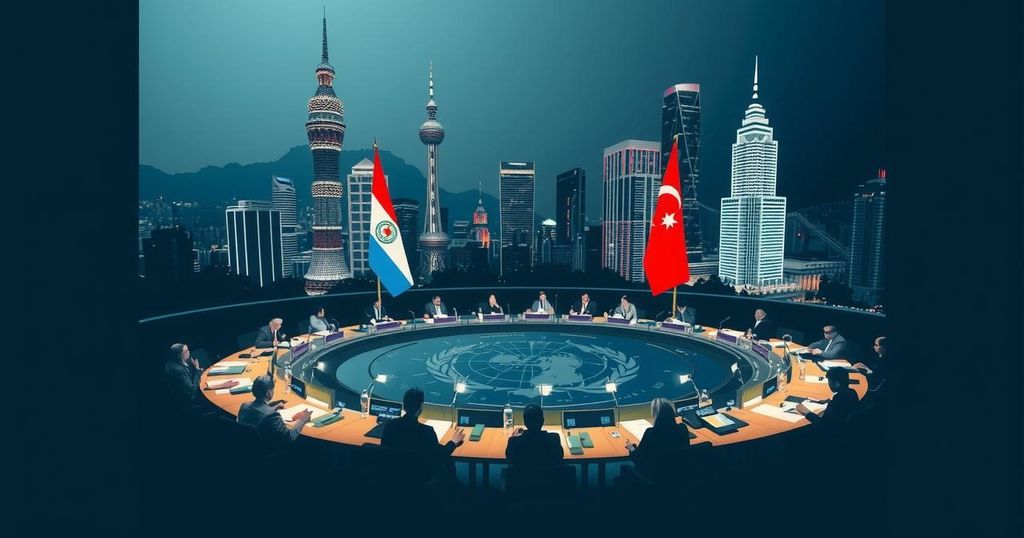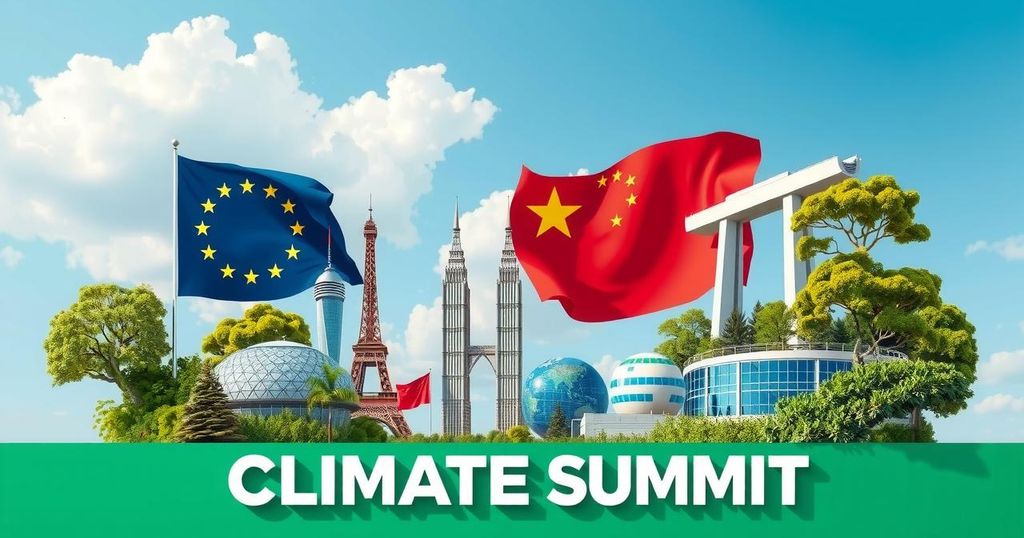UN Climate Talks COP29 Face Setbacks Amidst Funding Disputes
The UN climate talks COP29 have extended beyond their conclusion deadline as negotiators express frustration over inadequate financial commitments for developing nations to combat climate change. A proposed $250 billion annually by 2035 falls significantly short of the $1 trillion deemed necessary, prompting outcry from vulnerable countries and activists demanding stronger action and accountability from developed nations.
The recent UN climate talks, known as COP29, have extended beyond their scheduled conclusion amidst mounting frustration among negotiators. While a draft agreement proposed annual financial support of $250 billion for developing nations by 2035—significantly exceeding the prior $100 billion benchmark—experts assert that a minimum of $1 trillion per year is necessary to effectively address climate change. Negotiators continued discussions into the early morning hours, expressing a desire to finalize a workable deal, although the current figures fall well short of developing nations’ demands for $1.3 trillion to address the impacts of climate change, including drought and flooding.
Delegates from wealthier countries contend that the proposed funding is a realistic reflection of their economic constraints, despite widespread discontent from vulnerable nations suffering the consequences of climate change largely instigated by emissions from the developed world. Activists and representatives have vocally criticized the perceived lack of commitment from developed countries, with calls for more substantial commitments and accountability to ensure financial assistance meets legal obligations under the Paris Agreement.
With talks dragging on, many youth activists expressed disappointment with the current draft, alluding to it as an ‘abject failure.’ Despite these feelings, there was a sense of hope and solidarity among the activists facing this setback together. The potential collapse of these negotiations, combined with the reality of climate impacts already being felt globally, has heightened the urgency for more meaningful action and funding.
The UN climate talks, gathering representatives from various nations, typically aim to foster cooperation and commitment to tackling climate change. This year’s discussions have been overshadowed by considerable disagreements on financial contributions from developed countries to assist developing nations in climate adaptation and mitigation efforts. The topic of climate finance is central to these negotiations, as poorer nations seek support for addressing extreme weather events exacerbated by global warming, while developed nations face pressures related to their own economic limitations. Past agreements, such as the pivotal Paris Agreement of 2015, established expectations for richer countries to support the climate objectives of developing countries, creating a challenging dynamic in these negotiations. The escalating impacts of climate change and the required financial backing have fueled criticism of developed nations’ perceived failure to meet their commitments, further complicating global consensus.
In conclusion, the extended COP29 negotiations illustrate a significant rift between the financial needs articulated by developing nations and the offerings from wealthier countries, which many see as insufficient. The urgent call for increased and more effective climate funding underscores the challenges faced in fostering global solidarity on climate action. As the impacts of climate change grow more severe, it is imperative that negotiations yield substantive commitments that not only fulfill legal obligations but also address the immediate needs of those most affected by climate crises.
Original Source: www.taipeitimes.com




Post Comment